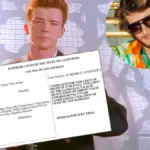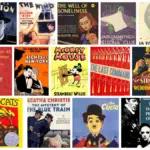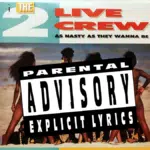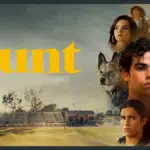Comedians and other spoken word authors are seeking the same streaming royalties paid to songwriters, but an impasse has led to the removal of their works from Spotify.
Do you want to be paid, or do you want to be heard? That’s the predicament hundreds of comedians seem to be finding themselves in following Spotify’s decision to remove their works from the streaming platform amidst a dispute over copyright royalties. Tracks and albums from hugely popular comedians like John Mulaney, Tiffany Haddish, Jim Gaffigan and Kevin Hart were quietly taken down by Spotify right before the long Thanksgiving weekend, leaving comedy fans and even some of the affected comedians scratching their heads.
Spotify’s removal decision stems at least in part from claims by Spoken Giants, a rights administration service that is seeking compensation for the use of its members’ spoken word content in much the same way that songwriters are paid for the use of their musical compositions.
Musical Works: One Song, Two Copyrights
To properly understand the situation and how it might play out, we need to dive a bit into the intricacies of music rights and royalties. Every piece of recorded music is actually comprised of two separate copyrights. The first is the copyright in the underlying composition, which protects the lyrics and musical arrangement of a song. The second is the copyright in a particular recording of that song as performed by a recording artist. When you listen to music on the radio or a streaming service, you’re technically hearing both the composition as well as the sound recording of that composition.
While the songwriter and the artist performing the song may be the same person, I think it’s easier to understand the distinction between the two copyrights by using an example of a cover song. Take Whitney Houston’s recording of “I Will Always Love You,” the lyrics and melody to which were written by Dolly Parton. Houston’s record label owns the rights in the master recording, while Parton and her publisher own the underlying composition. Every time the song is played on Spotify, the digital streaming service pays separate royalties on the sound recording and the composition. (Note that this isn’t the case with traditional over-the-air radio broadcasts; due to idiosyncrasies in the way copyright law has developed over the years, artists and record labels aren’t paid for the performance of sound recordings via terrestrial broadcasts.)
Typically, a share of royalties for the digital performance of a sound recording will flow to recording artists according to whatever contractual arrangements they’ve worked out with their record labels. Meanwhile, songwriters, composers and publishers will be paid a share of royalties on the underlying composition via performing rights organizations like ASCAP, BMI and SESAC. Because a digital stream is considered both a public performance and a mechanical reproduction of the song, songwriters and publishers are also entitled to receive mechanical royalties when their songs are paid on services like Spotify. In the U.S., these royalties are set by the Copyright Royalty Board.
Performance Rights in Literary Works
What about comedy routines and other creative works based on the spoken word? They aren’t considered compositions, unless they’re set to music. But that doesn’t mean they aren’t subject to copyright protection. If a literary work, whether it be a speech, poem or comedy routine is an original work of authorship fixed in a tangible medium of expression, it’s protected under U.S. copyright law. As I noted in my post about the copyright legacy of Martin Luther King, Jr., copyrights in speeches and other spoken word materials can be enforced just like any other copyrighted work. And when those words are recorded on audio or video, the resulting work qualifies as a sound recording.
Spotify and other digital services do pay royalties for the use of comedy sound recordings offered on their sites. When a record label or other distributor receives performance royalties from Spotify, it will presumably share a portion with the comedian per the parties’ contract. But historically, unlike the case with music, the use of the underlying words has not been separately compensated.
Performance “Absent a Specific License”
Back in 2012, Pandora started flagging this precise issue in its annual reports filed with the SEC, warning investors that its spoken word comedy content “is performed absent a specific license” from any performing rights organization. Pandora also cautioned that it could eventually be responsible for paying additional fees for its use of this content: “In May 2011, we started streaming spoken word comedy content, for which the underlying literary works are not currently entitled to eligibility for licensing by any performing rights organization for the United States. While pursuant to industry-wide custom and practice this content is performed absent a specific license from any such performing rights organization, there can be no assurance that this will not change or that we will not otherwise become subject to additional licensing costs for spoken word comedy content imposed by performing rights organizations in the future.”
The Effort to Obtain Public Performance Royalties for Spoken Word Works
While traditional performing rights organizations like ASCAP and BMI don’t collect royalties on behalf of spoken word creators, new organizations have been created within the past several years to fill the void. Perhaps the most notable of these organizations is Spoken Giants, which has signed an impressive roster of comedians including Patton Oswald, Tom Segura, Jeff Foxworthy and the estate of Bob Hope, among others. Spoken Giants’ stated mission is to work to ensure that the authors of spoken word content are compensated in the same way as songwriters.

One of the challenges facing organizations like Spoken Giants is that, unlike BMI and ASCAP, which are governed by consent decrees that require an arm of the government to set the rates they collect for songwriting performance royalties, no such legal guardrails exist with respect to literary works. While Spoken Giants has been in negotiations with Spotify, the parties haven’t yet been able to reach a deal.
Spotify’s Decision to Remove Comedy Recordings
This impasse in negotiations resulted in Spotify’s decision to remove scores of comedy albums from its site—many (although not all) of which include the works of Spoken Giants’ members. In a statement, the company said that “Spotify has paid significant amounts of money for the content in question, and would love to continue to do so. However, given that Spoken Giants is disputing what rights various licensors have, it’s imperative that the labels that distribute this content, Spotify and Spoken Giants come together to resolve this issue to ensure this content remains available to fans around the globe.”
While Spoken Giants has expressed disappointment in Spotify’s decision, presumably the streaming service thought there was sufficient legal risk were it to continue exploiting the recordings without obtaining an express license in the underlying literary works. It’s also possible that Spotify’s move was designed to put pressure on Spoken Giants. That’s because, with their works removed, the affected comedians are no longer receiving even their share of royalties from the performance of the sound recording copyrights—or being discovered by fans.
Record Labels: Caught In the Middle
Record labels that own sound recordings in comedy album masters find themselves in their own predicament as a result of Spotify’s decision. Unlike the comedians themselves, the labels don’t really have a dog in the fight between Spotify and Spoken Giants over the underlying literary works. The labels wouldn’t be entitled to a share of any writers’ royalties that may be due. They only receive royalties on the sound recordings, which now aren’t earning revenue at all. From a purely economic perspective, it would frankly be better for the labels if the comedians lost or gave up the fight for separate publishing royalties if the alternative is that the recordings won’t generate revenue. It will be interesting to see whether the labels actually take a public position against the artists though, given the risk of alienating the comedians on their rosters.
Custom and Practice vs. the Law
To my knowledge, no court has ever explicitly ruled that the writers of spoken word content are entitled to a separate payment for the use of a literary work in addition to the recording in which the literary work is embodied. But the fact that (in the words of Pandora) the “industry-wide custom and practice” is not to make a separate payment isn’t determinative of whether payment is legally required, especially if an organization like Spoken Giants is around to collect and enforce it.
As in the case of music copyrights, its easier to wrap our heads around the issue by considering an example in which the performer on the sound recording isn’t the same as the author of the underlying material. Imagine that a popular comedian decided to pay homage to George Carlin by performing and re-recording Carlin’s famous “Seven Dirty Words” monologue. There’s no question that any record label wanting to release a comedy album featuring the recording of the monologue would need to get a license from Carlin’s estate or his publisher. Without an explicit license, the label could be liable for copyright infringement for reproducing and distributing Carlin’s words—and if Spotify put that recording on its site without the estate’s permission, it could be liable as well.
Of course, the more pertinent question is whether a label that has received permission to record a comedian’s words can also license Spotify to perform the recording without Spotify incurring additional royalty obligations for the underlying literary work. If a spoken word artist has explicitly granted a label the right to license the work to streaming platforms, Spotify may be free to proceed. But absent a license, there’s not a readily apparent legal basis to subject literary works to different treatment than musical works.
Just to make a messier situation even messier, the Copyright Office’s position is that, while stand up comedy routines can be registered, they should be registered as works of the performing arts, not literary works. “Generally, literary works are intended to be read; they are not intended to be performed before an audience.” But a poem intended to be recited aloud can either be registered “as either a nondramatic literary work or a work of the performing arts.” Likewise, “interviews intended to be performed before an audience” are classified by the Copyright Office “as works of the performing arts, but they also may be classified as literary works.” It’s unclear why a comedy routine should be treated differently than a poem or interview, and whether this difference in treatment would affect any entitlement to royalties.
Here’s hoping that Spotify and Spoken Giants can work out an appropriate deal and that the affected comedy works will be back up soon. Of course, even if they do, this doesn’t mean that comedians are going to see a massive windfall, at least not without generating millions of streams. As comedian Gianmarco Soresi recently tweeted, “Spotify took my album off their platform but luckily I found a penny on the street today so I won’t notice the difference for a couple years.”
Should the performance of comedy and other spoken word content require the payment of a separate writers’ royalty? As always, let me know what you think in the comments below or @copyrightlately on your social media platform of choice.







5 comments
Quite frankly, you were able to blow my mind with your title because before this moment I couldn’t even suspect it. Of course, it is a really serious and global decision which, without any doubts, is caused by certain circumstances. Before this moment I hadn’t been aware of all nuances and subtleties connected with copyrights on musical composition. I can say that for me it is really difficult to find an explanation on this tough copyright protection regarding comedy routines and other creative works based on the spoken word because, In my subjective opinion, it is not justified or expedient. I have no doubts that Spotify’s decision to remove comedy recordings will entail a flurry of negativity and will cause an ambiguous reaction, but, from my point of view, Spotify has no proper alternative in such a situation. But I, like you, hope that the affected comedy works will be back up soon.
So does this mean that AMC theatres owes a separate royalty to the writer’s of movies every time the movie is played?
When motion pictures are produced, the underlying screenplay is merged with the contributions of the film’s director, actor and others into the final film, which is then licensed to distributors and exhibitors. So in your example, AMC would pay for the right to exhibit the film, which entitles it to show all of the film’s components without paying a separate royalty. The screenwriter may be able to negotiate some contractual participation interest, but that would be payable by the studio, not the exhibitor.
Aaron – suppose that an agreement between a comedian and a record label, or an agreement between a comedian and the producer of a television comedy special, granted the label/producer the right to exploit the recording/audiovisual work in “all forms of exploitation now known or hereafter devised.” In that situation, would you say that the label/producer would have the right to license the recording/audiovisual work to a streaming service and that the service would be entitled to perform the recording/audiovisual work without any obligation to license additional rights from the comedian?
Hi David – Yes, I think that would insulate the label/producer, and I’ll bet that a bunch of the comedians who haven’t sued Pandora have these types of deals.